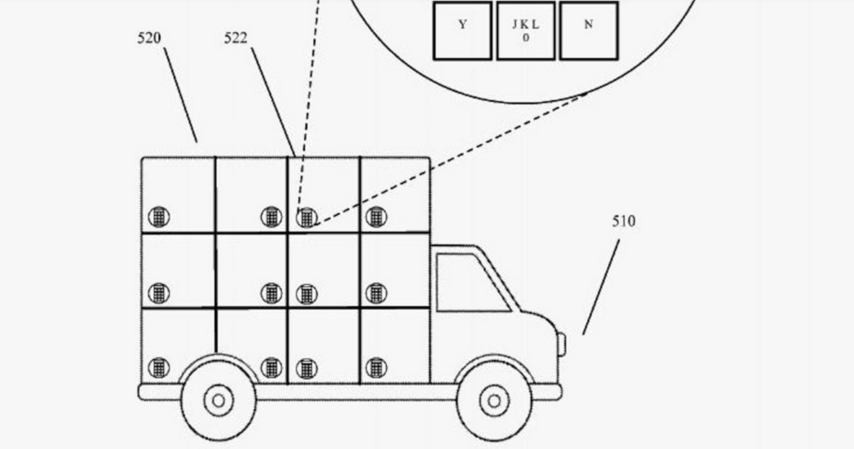Google’s patent outlines what it calls an “autonomous delivery platform” for delivery trucks. The trucks would be fitted with a series of lockers that could potentially be unlocked with a PIN code sent to the person waiting for the delivery before the truck arrives at their location.
The patent also suggests the locker could be unlocked by a customer’s credit card, or an NFC reader. After the package is dropped off, the truck will continue on to its next delivery point, or return to the depot to pick up more packages.
The patent explains that the truck would use a combination of sensors such as radar, video cameras, and range-finding lasers to see the road and traffic around it. Customers could request a delivery, choose the method they want for unlocking the secure compartment, and even be notified by text when the truck is close to arrival. And if it gets stuck in traffic, assuming traffic still exists as a problem in world of driverless cars, the truck will text to say it’s going to be late.
The truck might rely on a laptop, tablet, television, handheld computer, or PDA as its networking device. It might use Bluetooth or NFC. It could leverage a VPN, LAN network, WAN network, or MAN network (not to be confused with an actual man, who will not be needed for much of anything anymore).
Google’s parent company, Alphabet, has also been openly working on a drone delivery program it hopes to launch in 2017, called Project Wing, as well as its self-driving car program that’s now testing out vehicles in three US cities. (In 2014, Google also applied to the California Department of Motor Vehicles to test out autonomous commercial trucks, according to IEEE Spectrum, although the company said at the time that it wasn’t testing out any trucks.)
➤ Autonomous Deliver Platform [United States Patent and Trademark Office]
